Is EB-1A Petition Worth Pursuing WITHOUT Your Employer's Support?

Should You Pursue an EB-1A Petition if Your Employer Won’t Pay for It?
If you’re currently waiting in the EB-2 or EB-3 backlog, you've likely started to consider other options like the EB-1A. In fact, more and more talented professionals are asking themselves if pursuing an EB-1A is worth it, even if their employer doesn't sponsor the petition. In my experience, it often makes sense to think proactively about your immigration future, even if it means investing your own resources.
Let’s break down why exploring an EB-1A petition could be a smart step for you and your family, even if your current employer isn’t ready or willing to get involved.
Understanding the Difference in Interests: You vs. Your Employer
Many H-1B workers assume their interests match those of their employers. After all, doesn't it benefit both parties when you get your green card and they don't have to pay to sponsor your H-1B anymore?
Actually, not necessarily. Employers have their own incentives, and those incentives don't always align with your long-term ambitions. Once your labor certification and your I-140 petition are approved, your employer has secured its ability to retain your indefinitely in H-1B status. While this enables them to keep you for the rest of your career, what if your green card process takes so long that you want to you retire before your green card is issued?
In addition to not being bothered about your ability to reside in the U.S. in your retirement, your employer may even prefer you to stay in H-1B status. Some employers fear that with the newfound independence your green card will give you, you’ll move quickly onto other opportunities.
Why Your EB-1A Matters (and Why Employers Underestimate It)
There's a real misconception about the EB-2 and EB-3 backlogs. The backlogs in these categories for those born in India have become severe in recent years. If you've estimated your wait based on how long ago people who are filing green cards now started their own processes, you may be drastically underestimating current reality.
Here's why it's different now:
- Increasing backlog: Far more people have entered the queue over the last decade than have exited, dramatically increasing wait times.
- Uncertainty about future reforms: Immigration policy changes that may help you are unpredictable and rare. You cannot count on reforms anytime soon to alleviate the visa backlog, or to make it fair between Indians and everybody else.
Pursuing an EB-1A could significantly accelerate your path to permanent residency, and give you some essential peace of mind.
Choosing Your Own Legal Representation
If you’re currently on an H-1B, you’ve been working with your employer’s attorney. Remember, when it comes to H-1B petitions, you aren't in charge; you don't even sign the petition. Given this, you may not have had much contact with your employer's immigration lawyer. And you didn't get to pick the lawyer based on what matters to you.
Here's the thing to consider: not every lawyer or law firm is good at filing EB-1A cases, even if they're willing to take yours.
Why an Independent Immigration Attorney Might Be a Better Choice
- Specialized expertise: A law firm that focuses on H-1B cases might rarely handle EB-1A cases, making them less familiar, and potentially less effective, in crafting strong EB-1A petitions.
- Focused dedication: A firm specializing in EB-1A petitions will understand the nuances of extraordinary ability claims and can precisely highlight your strengths and qualifications.
- Personalized strategy: Working directly with your own immigration attorney ensures a strategic plan designed for your own best interests.
Should You Shoulder the Cost Yourself? Three Factors to Consider
It's understandable if you're hesitant about absorbing the cost of legal fees entirely on your own, especially when your employer has already paid for all of your H-1Bs, you labor certification, and your I-140. Before you decide, I suggest weighing these points:
- Speed and security of your immigration future
A successful EB-1A petition can shave years—even decades—off your waiting time. Consider the real, tangible savings in personal and family stress, career constraints, and future uncertainty. - Career flexibility
With a green card, you’ll have unprecedented freedom in your professional life. Investing in yourself now may significantly boost your career mobility and earning potential of you, your spouse, and your foreign-born kids down the road. - Family well-being and stability
Permanent residency offers enormous personal advantages, including easier travel (with no visa processing!), more education opportunities for family members, and greater security in a tumultuous political era.
At the end of the day, you must ask yourself if investing in your own green card process is aligned with your personal, professional, and family goals.
About the Author
Loren Locke is the Managing Attorney of Locke Immigration Law and a former U.S. Foreign Service Officer who adjudicated approximately 12,000 visa applications at the U.S. Consulate in Mexico. She holds a J.D. from William & Mary Law School and a B.A. summa cum laude from the University of Richmond. Loren is regularly quoted on immigration policy by major publications including Newsweek, Condé Nast Traveler, and The Daily Mail, and specializes in EB-1A extraordinary ability petitions, O-1 visas, and National Interest Waivers.
Follow Loren on LinkedIn | Watch on YouTube | Book a consultation | hello@lockeimmigration.com
Want to learn how to strategically frame your achievements for the EB1A "Extraordinary Ability" visa? My free 5-day email course, "5 Days to Your Compelling EB1A Story," provides the 'EB1A Storytelling Toolkit' to help you build a powerful case. Sign up here.
